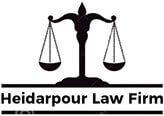FAQ ABOUT THE NATIONAL DO NOT CALL REGISTRY

With the rise of technology, unwanted calls are more and more common thanks to robocalls and other telemarketing tactics. These calls are often bothersome, and many are linked to scams. If you are sick of getting unwanted telemarketing calls, check out these four commonly asked questions to learn about what you can to do to protect yourself.
1. Why Was the Registry Created?
The Federal Trade Commission (FTC) created the National Do Not Call Registry in 2003. This registry was incorporated into the already established Telephone Consumer Protection Act (TCPA) of 1991, which already listed rules to limit pre-recorded messages and automatic-dial calls from telemarketers.
Consumers can add their number to the registry, and telemarketers can cross-check this list. According to the TCPA, telemarketers should not call these numbers. Unfortunately, many ignore these laws, especially scammers. However, the TCPA allows you to seek financial retribution if a telemarketer contacts you after your name is on the registry.
2. What Should You Do If Someone Keeps Calling?
If a telemarketer keeps calling you, add your name to the Do Not Call Registry. Additionally, keep all relevant information. This information often includes the name of the caller, the name of the business, how often they call, and when they call. Make sure to save all voicemails, text messages, and any written communication.
If you continue to get calls after adding your name to the registry, report the number to the registry. You usually won’t hear back from the FTC due to the large number of reports they receive, but they will still us the information to trace the call and identify trends. They also release the reported numbers to phone providers.
If telemarketers continue to harass you, you can sue them thanks to the TCPA. You can receive up to $500 each time someone violated the registry, and you can receive up to $500 per phone call if it violated the TCPA.
If you can show the telemarketer purposely ignore the TCPA, you may get up to $1,500 per call. In addition, if a company violates the National Do Not Call Registry, they can be fined up to $42,530 per call.
3. Are Some Calls Exempt?
Some calls are exempt from the TCPA and National Do Not Call Registry. These typically include political calls, charitable calls, and surveys. In addition, it excludes calls that are purely informative, such as pre-recorded messages from your pharmacy or doctor. However, if these calls include any marketing information, the company or organization may be held accountable under the TCPA.
If you’ve ever given a telemarketer or company permission to robocall, they can continue to call even if you add your name to the National Do Not Call Registry. You will have to contact the company directly to rescind your permission. Ideally, you should do this in writing.
4. What About Debt Collectors?
In many cases, debt collectors can ignore the registry too. If you legitimately owe them money, they can contact you. However, they still must follow certain rules. For example, they must provide information about how much you owe, the name of the creditor, and what you should do if it’s not your debt. They also can’t call before 8am or after 9pm, and they must comply if you request that they don’t contact you at work.
The National Do Not Call Registry limits unwanted calls, but some callers ignore the laws. When they do, you can seek financial restitution. If you would like to learn more, or if you want to schedule a consultation for your telemarketing abuse case, contact us at Heidarpour Law Firm today.
